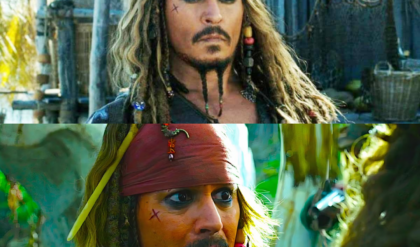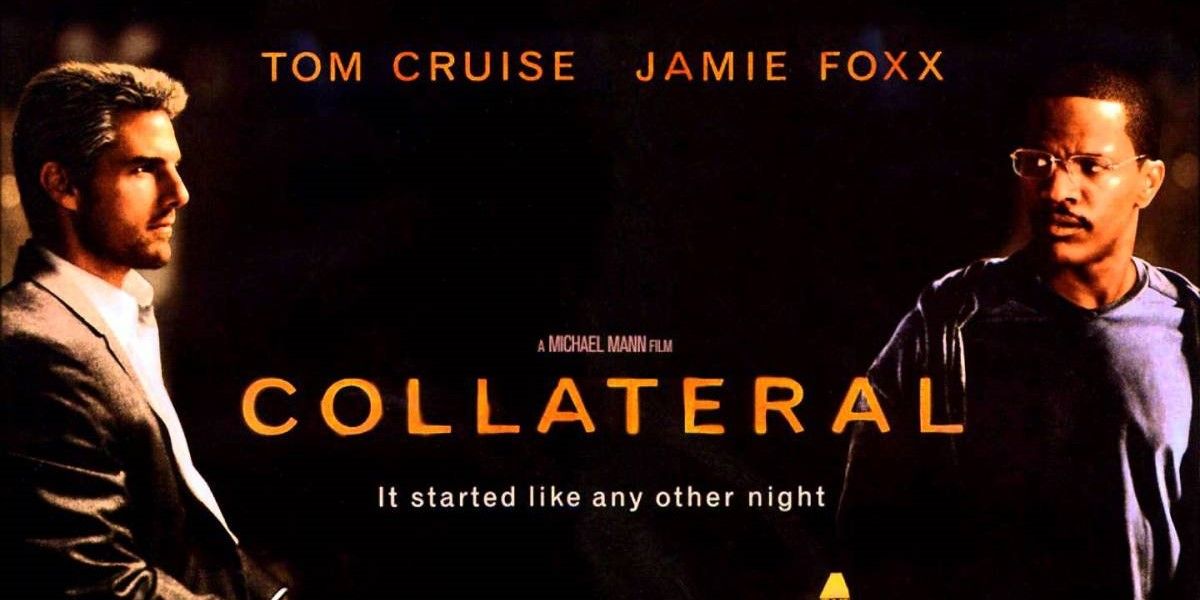
Tom Cruise has well and truly earned the moniker “The Last Movie Star,” perhaps the only actor who can still make a film a hit solely because he’s in it. That currency came to him over the course of a five-decade run that never saw him off the A-list for so much as a single day. In the process, he’s amassed a rich variety of roles, mostly trading on his leading-man charisma, but including regular forays into riskier parts that saw him step well outside his comfort zone. They comprise some of the most fascinating – and in some cases, the most underrated – onscreen appearances of his career.
One such performance is his starring role in Collateral, a crime thriller from 2004 that remains below the radar despite a strong reputation and solid box office. Cruise plays a hit man, forcing a cab driver to ferry him around Los Angeles while he kills multiple people on an ominous to-do list. It’s certainly not his most famous role, nor did it earn him any unusual accolades beyond another terrific performance in a career full of them. Fans who know him largely as Maverick or Ethan Hunt, however, will find both him and the movie to be a fantastic surprise.
Tom Cruise Plays the Villainous Vincent in Collatera
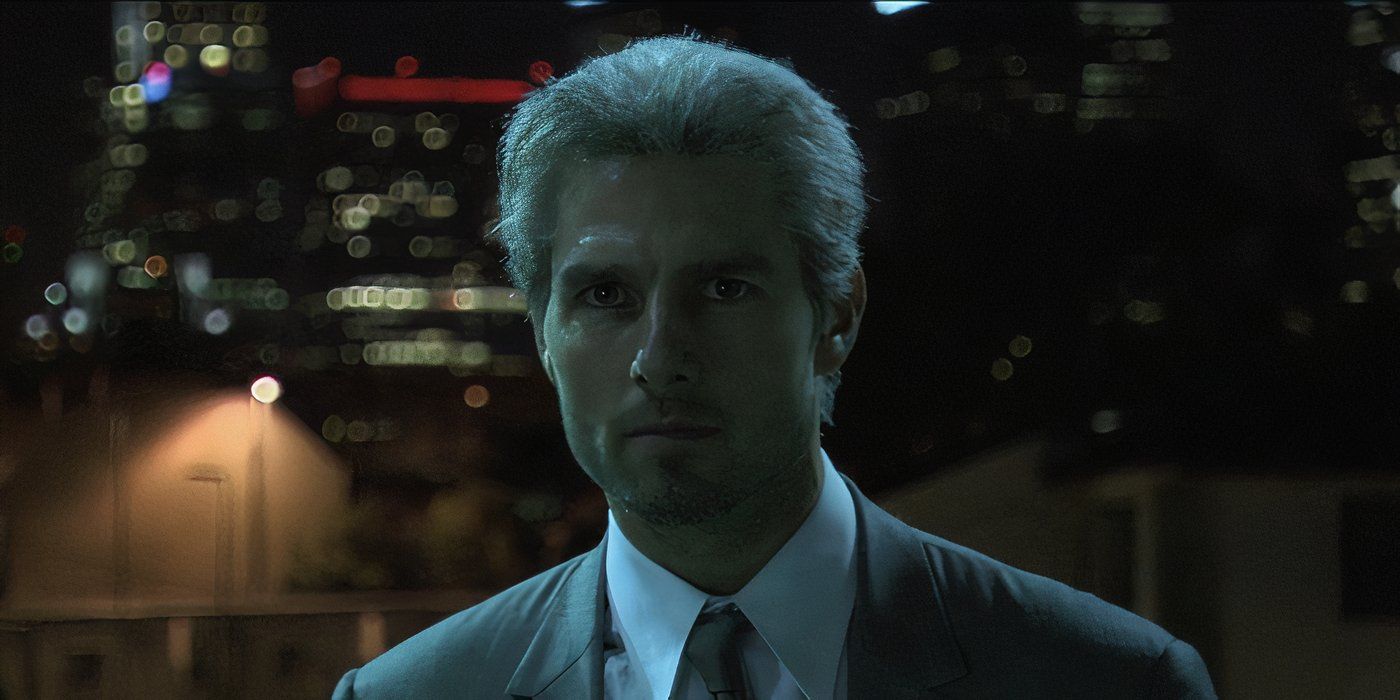
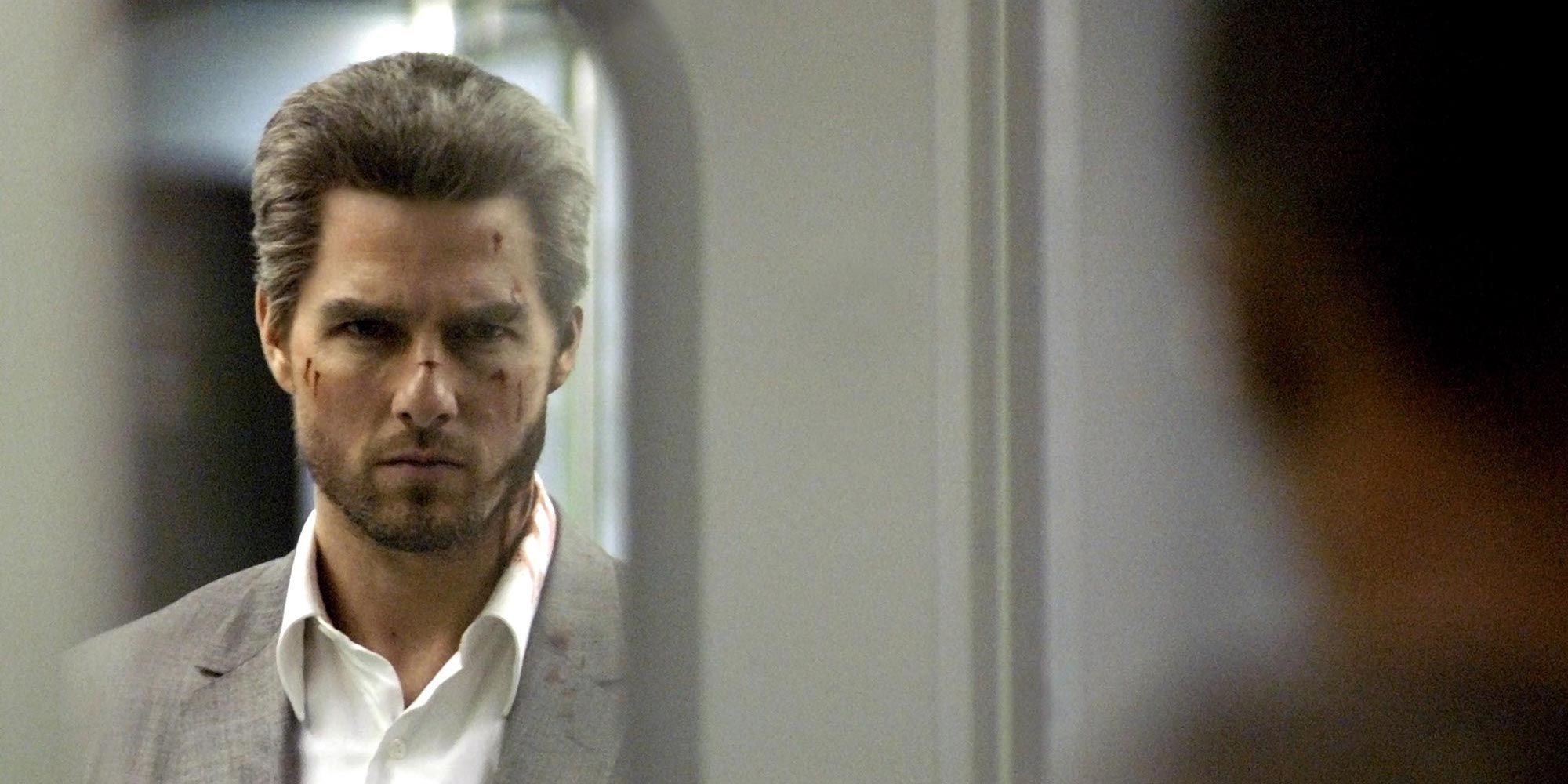
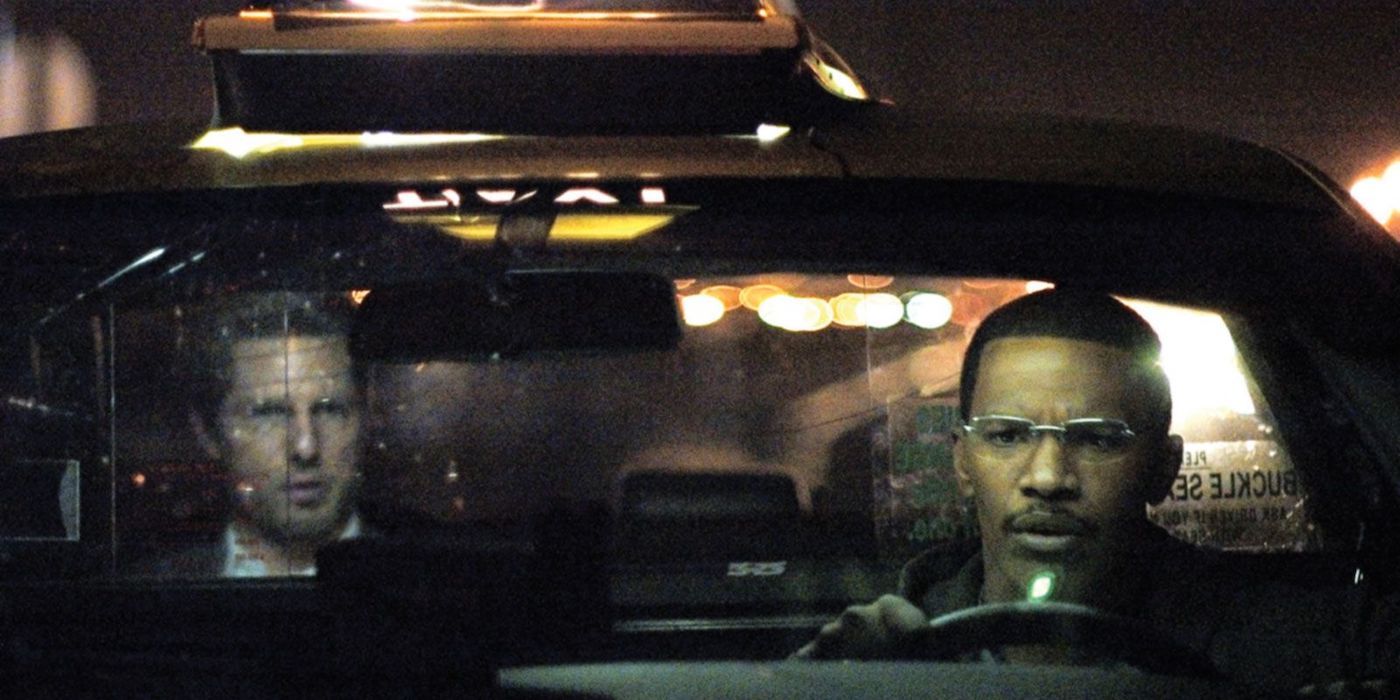
Title
Tomatometer Rating
Metacritic Metascore
IMDb Rating
Collateral
86%
74
7.5
Tom Cruise is largely known for his heroic roles, thanks to the likes of the two Top Gun movies and the long-running Mission: Impossible series. He does occasionally take a walk down the dark side of the street, however, which has resulted in some of the most memorable roles of his career. His toxic influencer in 1999’s Magnolia resulted in his third Oscar nomination (though he lost to Michael Caine), while his resplendent bloodsucker Lestat in 1994’s Interview with the Vampire is still the standout in a movie full of strong performances.
Even Rain Man’s Charlie Babbitt is a grade-A weasel, who only gradually finds the better angles of his nature. In every instance, the actor turns his bottomless charisma on its ear, as his million-watt smile goes phony and his character – whoever it is – looks for ways to hustle those around him. Lestat aside, Collateral might be Cruise’s darkest character to date. As a silver-haired assassin named Vincent who arrives in Los Angeles with a fistful of people to kill in a single night, he takes a cab, driven by Jamie Foxx’s amiable Max. He also offers $700 to drive him around for the night.
Max initially agrees, only to be caught flat-footed by his passenger’s violent agenda, leaving him a hostage to a hardened killer who clearly intends to dispose of the only witness to his crimes at the end of the night. What follows is an extended duel of wits, as Max desperately seeks some way out of the trap and Vincent’s congeniality vanishes to be replaced by a cold-blooded sociopath. Director Michael Mann is no stranger to the material, with a keen interest in crime and the underworld, and several masterpieces in the same vein under his belt by the time he helmed Collateral.
The audience arrives as strangers just as Max does, unaware of the significance of each killing and only gradually becoming aware of how they all connect to each other. The big picture becomes clear – providing the hapless cabbie with some thorny moral dilemmas along the way – but it’s far less important than the immediacy of the situation. The cityscape is cold and indifferent to the suffering of those who live in it, with an apex predator stalking the streets, and even the police reduced to little more than prey.
Collateral’s Director and Cast Immerse the Audience in Its Story
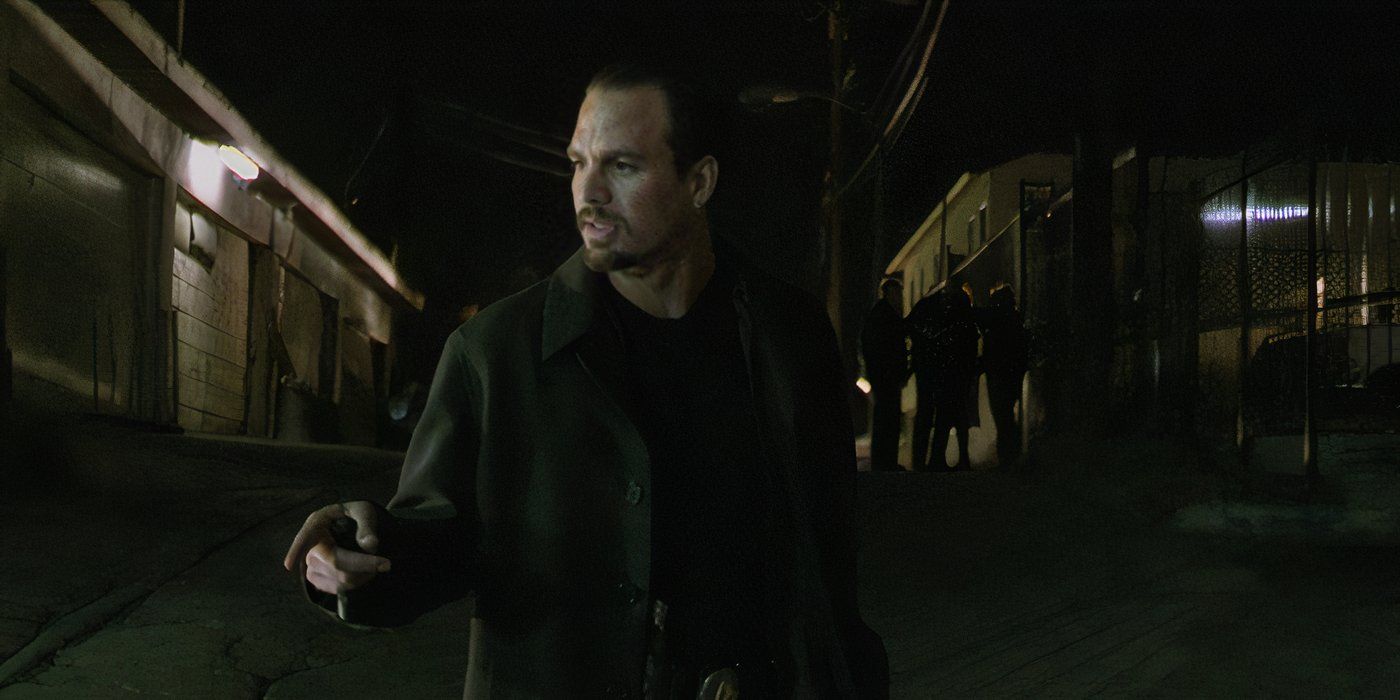
Mann’s reputation often affords him a stellar cast, and Collateral is no exception. That includes Mark Ruffalo as a smart cop hot on Vincent’s tail and Jada Pinkett-Smith as a friendly attorney who briefly makes sparks with Max. Foxx, in particular, is quite impressive, and the film wouldn’t have succeeded without him matching Cruise step for step. He’s scrambling for his life most of the time, as a regular guy caught in the machinations of a very dangerous man who fully intends to end the evening by putting a bullet in his head.
Foxx plays up his desperate ingenuity – including a third-act turnabout that pulls the rug out from under the entire film – without ever losing the audience’s sympathy. The film opened just a few months before Foxx won the Oscar for Ray, and in many ways, his turn here is no less impressive than that one. Indeed, he was actually nominated for Best Supporting Actor for Collateral – a rare double nomination – losing to Morgan Freeman before taking home the Best Actor Oscar later that same night. That plays out against the backdrop of Los Angeles, which Mann transforms into a character in and of itself similar to the way he did in 1995’s cops-and-robbers thriller Heat.
Mann shot Collateral largely on digital HD cameras – a first for a production of its scope – which gives it a gritty, street-level view of what Vincent describes as an isolating urban landscape. Mann shot the movie on location in hidden corners of Southern California that aptly reflect Vincent’s bloody task. On the surface, everything is familiar and Max’s evening starts very normally: cruising well-known freeways with various clients and shuttling to LAX just before he picks up Vincent. The skyline of downtown never seems far away, regardless of the circumstances, reminding audiences how close the ordinary world is to the circumstances on screen.
Once Vincent arrives, however, his description of the city proves apt. People become strangers, everyone has an agenda, weapons are hidden just out of sight, and figures like the police prove every bit as dangerous as the man in the back of the cab. At one point, a coyote comes trotting down the middle of the street, signaling that the law of the jungle still prevails beneath the skyscrapers and streetlights.
Collateral is One of Tom Cruise’s Best Films
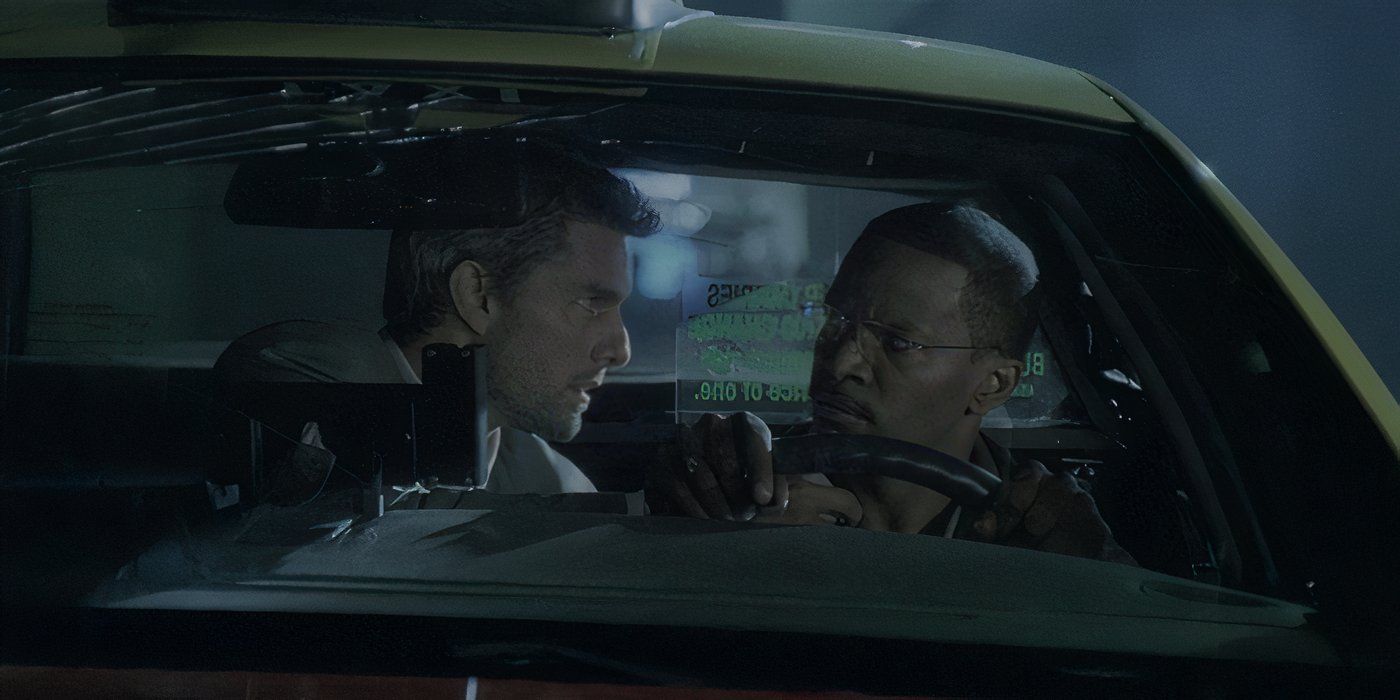
Vincent is the perfect embodiment of a different type of killer: smooth, cool, dressed to the nines, and seemingly two steps ahead of everyone. At one point, a group of low-level street hoodlums steal the valuables from the cab while Max is zip-tied to the steering wheel. Vincent returns and executes them almost without breaking stride. If LA is a jungle, he’s unquestionably its king: happy to gobble up any smaller game who forget their place in the pecking order. As the evening wears on, the question turns from why Vincent is killing these particular people to how Max is going to outsmart someone who, in his own words, “does this for a living.”
All of that hinges on Cruise, the centerpiece of the film, who has to balance the character and his status as a movie star in equal measure. According to a piece on CNN, he prepared for the role by working as a FedEx delivery driver to ensure he could pass undetected on casual inspection. In many ways, Vincent is just as anonymous: seek and cool, but nothing out of the ordinary in the image-obsessed Southland. Cruise blends it with his bottomless charisma, which ensures that the audience doesn’t take their eyes off of him even while he’s all but invisible. It’s difficult to imagine anyone else in the part, if for no other reason than the way he holds those two disparate halves of the character together.
Cruise has never been one to rest on his laurels, which is part of why he remains such a strong box office draw. His willingness to push boundaries combines with keen instincts for what works. In the case of Collateral, it produces a unique performance unlike anything he’s done before, wrapped up in one of the best crime thrillers of the 21st Century. Cruise’s off-screen reputation took a huge hit just a year after the film opened, as his engagement to Katie Holmes became tabloid fodder and his subsequent odd behavior raised considerable eyebrows. As such, Collateral and his performance got a little lost in its wake. Both are well worth re-discovering.
Collateral is currently streaming on Paramount+, and can be viewed free with ads on Pluto TV.


